SYDNEY: Phuketwan journalist Chutima Sidasathian delivered an academic paper today that warns Thailand and Asean of the consequences of ignoring the stateless Rohingya boatpeople and the cause of their torment: Burma.
The recent advent in Burma of so-called democracy ''unleashed racism and intolerance to levels that had not been seen for years,'' she said. Burma is also known as Myanmar.
The journalist-academic warned that many loyal Thai Muslims along the Andaman Sea coast were becoming alienated because of the way Rohingya were being treated in secret.
Ms Chutima was speaking at the University of Sydney, where the International Conference on Thai Studies is being held. This is an adapted version of her paper:
PHUKET IS a pleasant destination for a holiday and a good example of a tolerant place, where people of different backgrounds and beliefs are able to live alongside each other.
In Burma on the other hand, the treatment of stateless Rohingya still leaves many questions unanswered about the meaning of ''democracy.''
In Burma, the arrival of democracy was expected to be a good thing.
Yet giving people a greater right to speak out actually unleashed racism and intolerance to levels that had not been seen for years.
In Rakhine state, Buddhists turned on their Rohingya Muslim neighbors, rekindling hatred and resentment that led in 2012 to the torching of whole villages and hundreds of deaths.
The world's reaction to the arrival of democracy in Burma has been wholly welcoming. Yet Burma appears to be underpinned by intolerance and racism in an unhealthy way.
How can the world embrace a new ''democracy'' where violence and casual brutality are accepted so easily?
I have not been to Rakhine state but I remember on one brief visit to Burma I came across a family household, engrossed by a television show. Anxious to see what it was that kept them so captivated, I moved closer.
It was a dog fight - a fight to the death between two animals. I retreated in horror and did not stay to see which dog lived and which dog died.
For all I know, this family may not have been typical. They could have been the only dog-fight lovers in the street. Cultural misconceptions are common.
Yet what is plain now is that ''democracy'' does not instantly arrive with a vote but through the values that come with equality. These values must surely include tolerance.
THE FIRST Rohingya I saw were in a jail cell in the Thai border port of Ranong. It was good to see them because they were the first boatpeople to arrive in Thailand after the ending of the ''pushbacks'' policy.
Under this policy, Rohingya were gathered in secret on an island near Ranong then pushed back out to sea, on a vessel with no means of propulsion and with little food.
Several hundred men and boys are believed to have died before a colleague and I reported on what was happening.
People in Thailand doubted that the reports were true. They could not believe that men in uniform could behave so badly. But in the end, the truth was accepted and the evil process was stopped.
The Thai Government quickly replaced its inhumane policy with indefinite detention. The Rohingya we encountered in the police cell that day were held for more than two years, sending the message to other Rohingya: there will be no sanctuary found in Thailand.
Come this way, they warned others, and you may be stuck in a cell indefinitely.
In January 2013, a boatload of Rohingya arrived off the coast of Phuket. It was different to previous arrivals because this rickety vessel contained women and children, as well as men.
For the first time, the reporters who ventured out to see for themselves could confirm that whole families were now being forced to flee the hatred in Rakhine state in search of sanctuary.
Thailand, seemingly embarrassed by this turn of events, held the families for a short time then trucked them back to the port of Ranong, putting them back onto another boat and then recycling them into the same risky system.
Later that month, though, Thai authorities apprehended other boatloads and also raided secret traffickers' camps in the jungle. More than 2000 Rohingya men, women and children were ''rescued'' in this fashion.
It was intended, the authorities announced, for the status and future of these people to be determined over the next six months, with the possibility that new homes could be found for them in so-called ''third countries.''
As months passed, women and children, held in family shelters, escaped into the arms of traffickers and were mostly carried away across Thailand's southern border to Malaysia.
The men were held captive in Immigration cells, and often packed tightly together so they could barely move. Over the months, their condition deteriorated. The problem was not helped because the prisoners spoke a different language to their jailers and no translators were provided.
So, on a day of deep religious significance when the inmates wished to pray together outside in a compound, a lack of understanding at one facility led to scores of police being called from neighboring provinces to deal with a ''riot.''
The need for scapegoats quickly became so intent that, as journalists reporting on the event,we were blamed for provoking this ''uprising.''
What actually happened was that, in an effort to develop a line of communication between the unhappy prisoners and their equally unhappy jailers, I telephoned a translator who spoke both the Rohingya language and the Thai language.
For a time, his voice played out through the speaker of the iPhone urging calm. But there was no possibility of the tenuous arrangement succeeding.
Im the end, with the six month deadline passed and no solution found, the Rohingya simply escaped into the arms of traffickers or were recycled by officials into the smuggling system at sea.
ALONG THE west coast of Thailand and in the country's south, the trafficking of humans has become a major industry. Rohingya say it's now much more profitable than drug dealing.
Not only is it more lucrative, it's also less dangerous because the authorities are often keen to help the trafficking process. It's in their interest to speed the boatpeople through or past Thailand, if possible without even setting foot in the country.
And, so the argument goes, these people are being smuggled voluntarily, so in terms of precise language, what's happening could be described as people smuggling rather than human trafficking.
Yet because the process involves bondage, beatings and extortion, it's often clearly trafficking. While there has yet to be evidence produced that Rohingya have been sold onto fishing boats or shanghaied by trawler captains, those practices are certainly in evidence along this same coastline.
Young stateless Rohingya men lacking family in Malaysia would certainly be vulnerable to just that kind of fate. Finding a survivor to confirm what had happened is perhaps an even more difficult task.
The relationship between the Burmese who want the Rohingya gone and Thai officials is difficult to fathom. Both countries are members of the Association of South east Asian Nations.
Asean does nothing to prevent the ethnic cleansing of the Rohingya. In the view of the regional body, it's yet another issue of principle on which they hold no principles.
When Rohingya are forced to put to sea to search for a future without repression and persecution, the Royal Thai Navy follows the policy of its government by assisting the Rohingya to move as swiftly past Thailand as possible.
If the Thai government's policy took account of international human rights, efforts would be made to apprehend human traffickers at every opportunity.
Officials in Thailand may not always actively help the traffickers to achieve their ends, but they certainly do not interfere or make arrests unless they are specifically so ordered to demonstrate Thailand is doing the right thing.
The growing problem for Asean and for Thailand is that the iniquitous nature of the treatment of the Rohingya in Burma and in Thailand is plain for all to see. In Burma, the boatloads are forced to flee and they will never be welcomed back.
In Thailand, the trafficked boatloads are mostly hastened along, unless there is a need for a demonstration that Thailand sometimes does care about these people. Deaths occur regularly in cramped cells when Rohingya have no room to stretch.
Muscles atrophy, skin diseases spread easily and hopelessness descends quickly.
Dr Surin Pitsuwan, who for five years was Secretary General of Asean, made the point before retiring that the Rohingya issue is capable of destabilitising the entire region.
Since he left the post, bomb blasts in Indonesia and a shooting in Kuala Lumpur have been attributed to Rohingya activists. Thailand is perhaps the country outside Burma where the balance is being most greatly disturbed.
For a time, Muslims along the Andaman Sea coast were the greatest supporters of the military in capturing stray boatloads of Rohingya and helping to herd them into detention. That's not the case these days.
Some Muslim villagers now hide Rohingya where they can, and will try to ensure their safe passage to Malaysia without interference from the military if possible.
This attitude is also prevalent in areas where the Rohingya are kept in secret traffickers' camps, particularly around the city of Had Yai in Songkhla.
Although outnumbered by villagers who either make money from the process of keeping the Rohingya captive, the ''good'' Muslims will nevertheless free them or help authorities to free them if they can.
One village, Hinlad, even has erected a disused Rohingya boat in a local park near the mosque to note its commitment to finding freedom for these people from the north.
Another villager, based near Had Yai, showed a secret compartment in his house where as many as 40 Rohingya could be kept without being discovered. It's true that he could be a trafficker, but this man was reviled by neighborhood traffickers because he worked with the authorities in organising raids on jungle camps.
THE HOLIDAY island of Phuket lies between the villages of the Andaman coast, where the residents are gradually being persuaded to show more sympathy to the Rohingya. and the villages of the mid-south, where the concept of trade and trafficking still sways many Muslims, but not all.
Phuket is striking as a centre not only for tourism but also for tolerance, and this is particularly evident among the Muslims. At local mosques, tourists will pray alongside local Muslims and with them will be the stateless Rohingya.
With more than 50 mosques, the resident Phuket population is reckoned to be about one-third Muslim. These Muslims live close to beaches where tourists go topless, where alcohol is freely available in local bars, and where women can be bought for sex.
Yet Phuket's Muslims remain steadfast in their faith and their children receive a well-rounded education with Islam at its core.
Phuket's Muslims are clearly moderates, caught by geography in a coastal stretch that extends up Thailand's peninsula between the violence of the Deep South and the repression of the Muslim minorities across the border in Burma.
Muslims and Buddhists have lived at peace as long as people can remember along Thailand's Andaman coast, where Phuket is the most obvious landmark for growing internationalisation.
This is, to put it mildly, a place of extreme contrasts, where the rich of the world come to play yet where poverty and persecution are also represented.
When the Royal Thai Navy apprehend Rohingya, they have often been placed out in rows as unwilling sunbakers at one end of a beach while international tourists continue their fun at the other end of the beach.
On Phuket, it is not unusual for a villa worth millions of dollars to be on a headland overlooking a panoramic view of the sea while nearby, a poor group of illegal Burmese workers bunker down in shacks.
What would be unusual is for the rich occupants of the villa to notice, or to care.
The arrival of Rohingya along the Andaman coast of Thailand in greater numbers has brought growing sympathy from the local Muslim community.
Muslim fishing villages where the menfolk were once recruited by the Thai military to become part of a paramilitary network designed to repel the Rohingya have, over time, developed sympathy for their fellow Muslims, forced to flee oppression in Burma.
While they remain good Thai citizens, there are times when they wonder whether the decisions their government is making on their behalf are really the right decisions.
The doubts of the Muslim fisherfolk along the Andaman coast are a sign that Thailand's policy on the Rohingya should be carefully rethought.
THE ROHINGYA remain the great unwanted of South East Asia, a people with no home and for the present, no future. To meet some of them on their boats or soon after they have landed is to understand the phrase ''with only the clothes they stood up in.''
Other boatpeople do not appear to be as deprived as the Rohingya. They flee Burma because they must, embroiling neighboring Thailand in the same daunting decisions about how to treat them and what to do with them.
As a transitory country, Thailand is less likely to suffer a financial penalty from assisting the Rohingya.
But what it is now suffering is the alienation of many of its loyal Muslim citizens, who see the way their Government chooses to treat deprived and stateless people and object to this lack of compassion.
There is little doubt that unless Burma is made to deal with the Rohingya by granting them citizenship, the entire region will be scarred by Burma's intolerance, religious bigotry and unbridled racism.
THE INTERNATIONAL Conference on Thai Studies is held every three years, hosted either by a Thai university or by a university outside of Thailand where there is an interest in Thai studies. The conference will celebrate the University of Sydney's long-standing connection with Thailand.
Ms Chutima shared the 2010 Society of Publishers in Asia Excellence in Investigative Reporting and Excellence in Human Rights Reporting awards. In 2009 she shared the Scoop of the Year at the Hong Kong News Awards and the general news prize at the Human Rights Press Awards in Hong Kong.
Phuketwan is marking the 30-day countdown to the 30th anniversary of World Media Freedom Day on May 3 with news outlets around the world. Khun Chutima is also due to speak at the Melbourne Press Club on April 29.
Speaking trips to Japan and Europe are being planned.

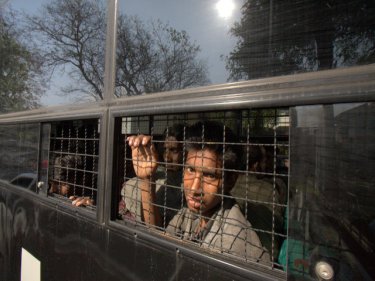

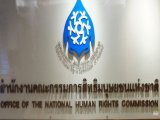

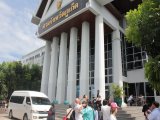

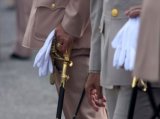
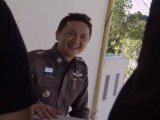
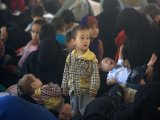

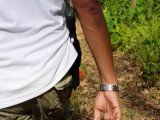
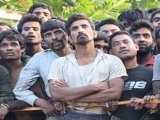

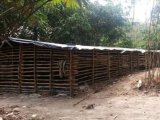






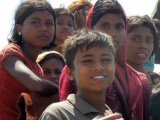
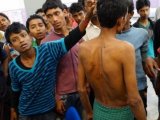


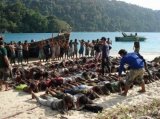
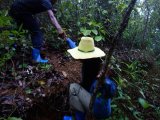

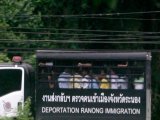

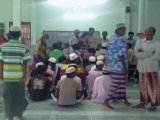
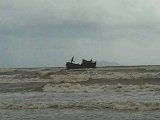
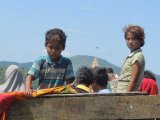
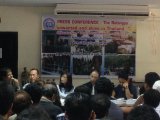
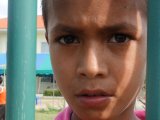
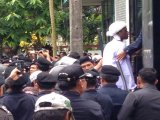
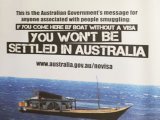
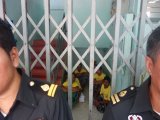
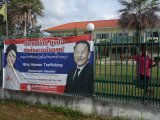
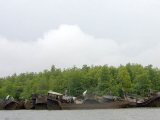
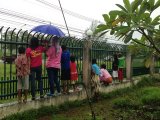
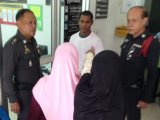

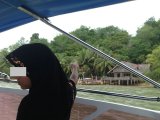

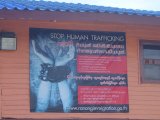
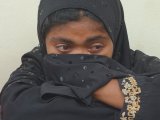
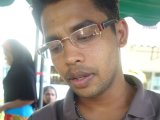
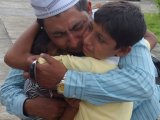

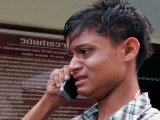

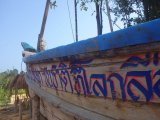
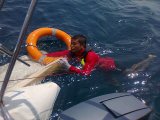
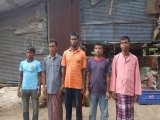
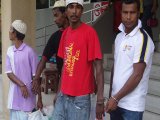

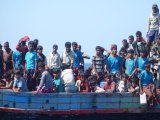
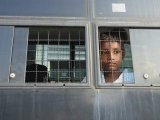

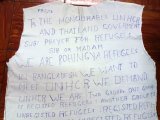
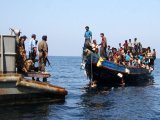
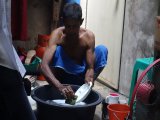
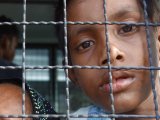

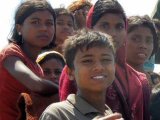
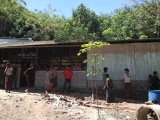
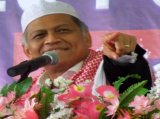
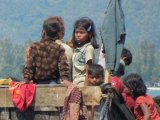
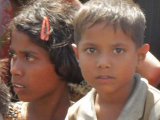

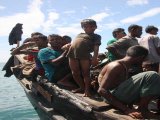
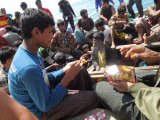



I know you don't like capitals but ... KUDOS !!!
Much respect.
(In a very twisted way, it's also good to hear that human life is worth more than drugs.)
Posted by James on April 22, 2014 17:44